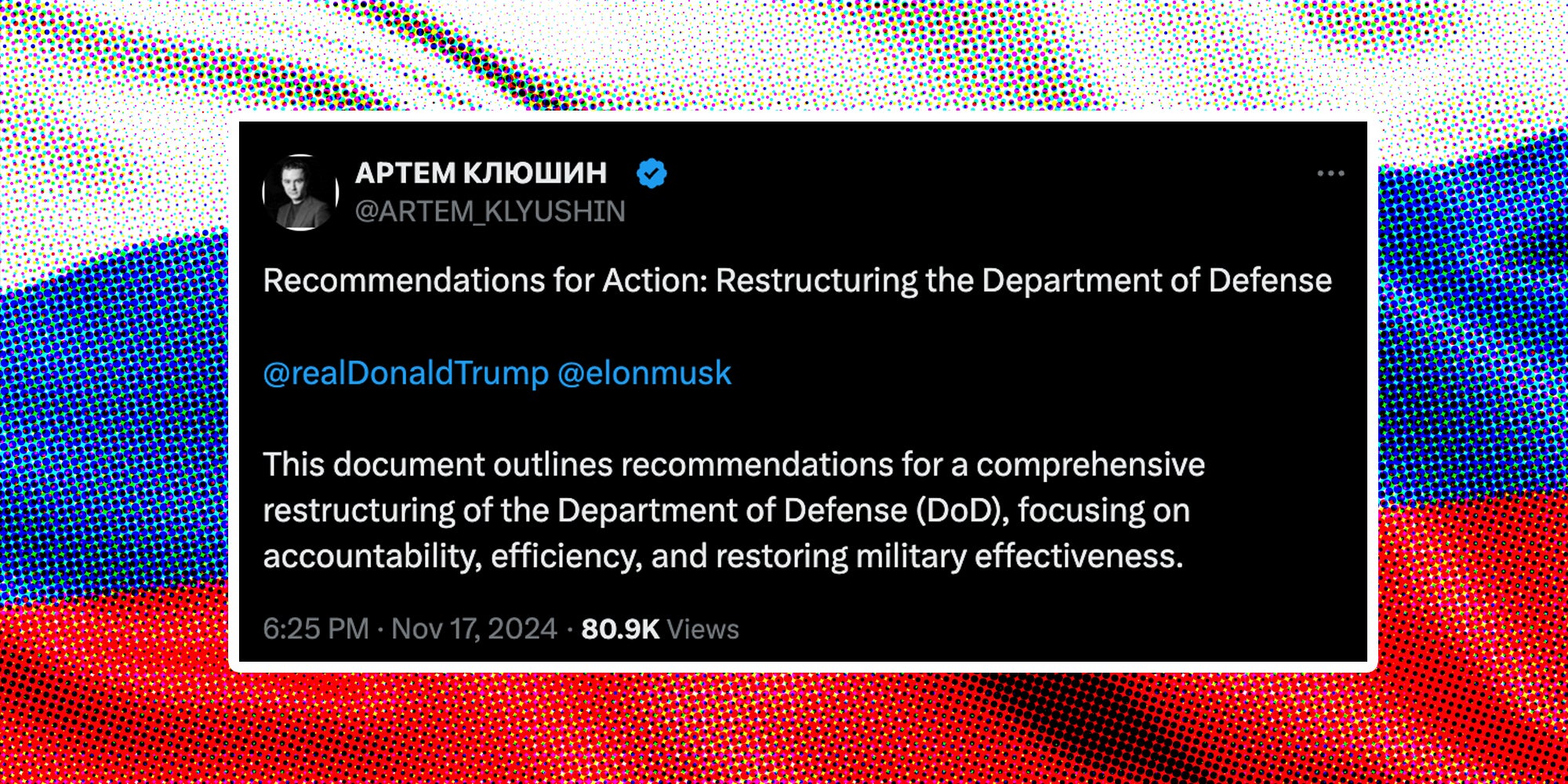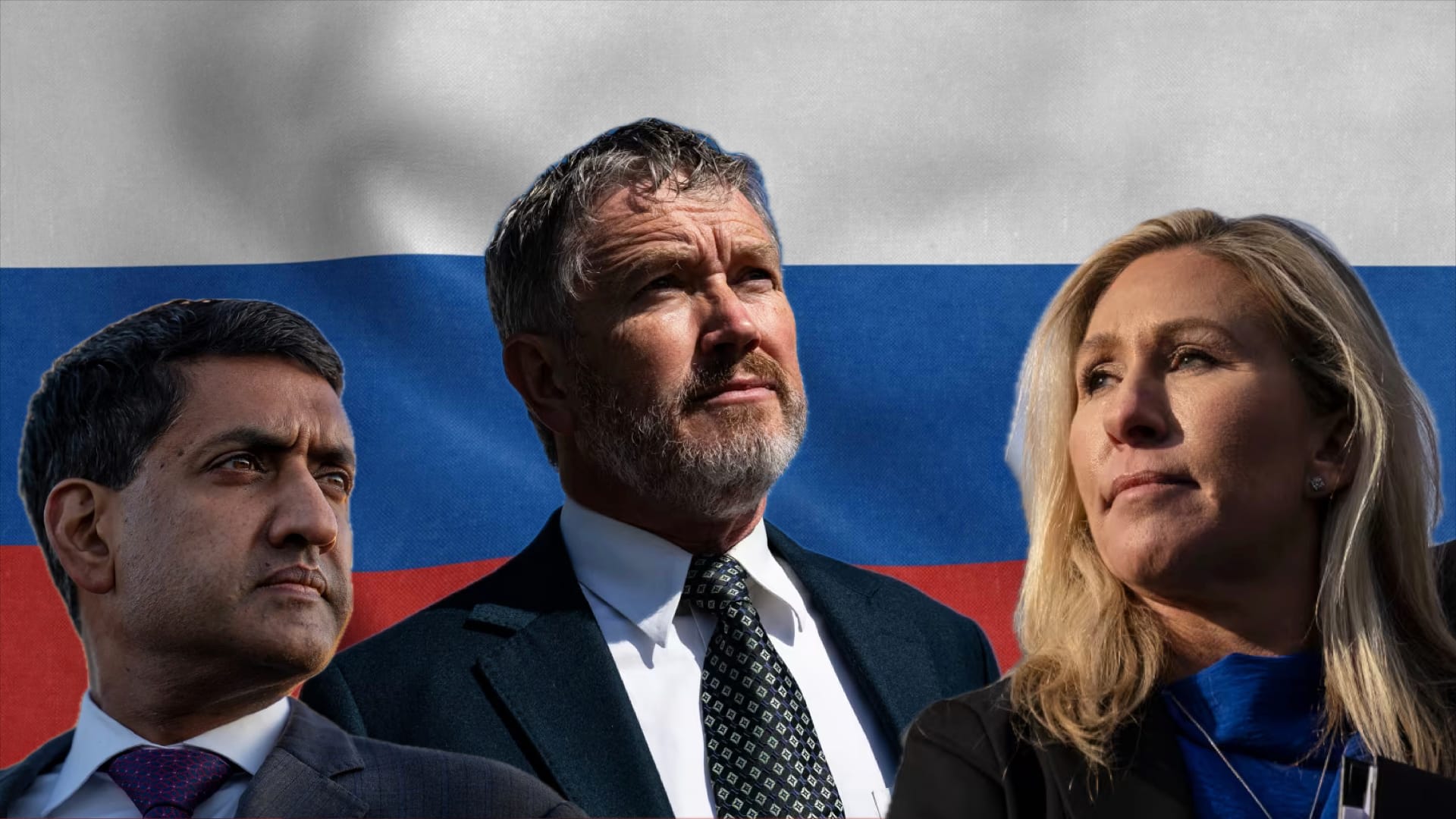As Trump Fails to Deliver, Russia Looks to Musk's America Party for Leverage
While Donald Trump has shown deference to the Putin regime, Moscow is turning to Musk to help close the gap on their most important policy goals.

Elon Musk recently announced the formation of the America Party, and online commentators have been quick to share hot takes about its meaning and prospects. Rather than join that chorus, and following up on our prior coverage of the ongoing Musk-Trump schism within MAGA, we've prepared a more comprehensive overview, addressing angles other outlets have missed. Here's what we know so far.
#1: It's about controlling Congress, not the Presidency.
Americans perceive politics through the lens of presidential races, and the last time there was a significant new challenge from a third party presidential candidate (Ross Perot, with the Reform Party in 1992), it helped Bill Clinton, a Democrat, become President.
Musk isn't focused on presidential races right now, he's focused on Congress, writing on X, “Backing a candidate for president is not out of the question, but the focus for the next 12 months is on the House and the Senate.” His perception is that Republicans are too pliable and easily swayed by groupthink. His goal is to break the back of the groupthink by controlling the thin majority spread in both houses.

For example, in the recent vote over Trump's “Big Bill,” Rep. Thomas Massie (R-KY), opposed the law, and claimed to have ten other votes who aligned with him. That turned out not to be the case, and his chance to block the bill evaporated. Musk's goal is to give Massie real leverage in the future.
While Musk could have funded such candidates with his America PAC, he's choosing instead to break with both existing parties and cultivate his own network of explicitly-aligned allies. But the goal is to control outcomes in Congressional votes by opposing the uniparty (aka “Porky Pig Party”), effectively controlling the deciding vote on contentious legislation — an efficient use of resources, if he can pull it off.
Earlier this year, America 2.0 learned from a source that neo-fascist blogger Curtis Yarvin had specifically recommended targeting Congress next. Musk's plan is aligned with that advice.
#2: It's about Russia and the national debt.
Musk's singular focus has been the US national debt and the debt ceiling, which also aligns with Russia's top policy priority: ending US dollar hegemony. This also aligns with the long-time libertarian obsession with eliminating deficit spending, which is what drove Massie (and some others) to oppose the recent BBB legislation. Musk, Putin, and Dugin may have thought they sunk a hole-in-one with Trump's election last November — but six months in, he's simply not delivering on enough of their agenda.
Between Trump's attack on Iran and his offering no meaningful opposition to increased federal spending, Musk is attempting to claw back control of Congress — which has control over all spending — by directing resources at key races, believing he can create a new fulcrum of control.
With that in place, he may have leverage to effect other measures desired by the Russia-libertarian axis: Ending the Fed (a fixation of Ron Paul and Thomas Massie), transitioning to Bitcoin and other crypto schemes (Musk has said “fiat [currency] is hopeless”), and dramatically shrinking US military expenditures — moves that all directly benefit Russia.
#3: Duverger's Law may not apply here.
Pundits love to trot out lines like “third parties have never really worked in this country,” without offering any understanding of why. But it's well-covered ground. French political scientist Maurice Duverger argued that first past the post voting (where a single winning candidate is the one who gains the most votes) always leads to a two-party duopoly. This maxim has become known as Duverger's Law, and it also suggests that any successful third party will eventually replace one of the two existing incumbent parties.
While that may be one of Musk's long term goals, given his laser focus on specific Congressional races, that strategy could take a long time. Also, Americans are experimenting with alternative voting systems like ranked choice voting (RCV), as in the recent election in New York City.

But even as Musk has now chosen to label his effort as a party (rather than just a PAC) it doesn't mean that Duverger's Law or other historical third party dynamics necessarily apply to his effort. From the start, he has chosen to differentiate his efforts from those of old-line Republicans, and even MAGA. “Dark MAGA” was a specific in-group identifier from the start, and presaged the emergence what's now the America Party. In this way the America Party is more akin to the Justice Democrats than the Reform or Libertarian parties: it is a signifier of specific ideological alignment rather than a commitment to a fully-realized political party.
#4: Russia is done with Trump and ready for the next phase.
Social media accounts purported to belong to fascist geopolitical theorist Aleksandr Dugin and Russian political operative Artem Klyushin have been flashing red with signals that they are displeased with Donald Trump and the BBB legislation, and are ready for new leadership in the U.S.
The Dugin account has relegated Trump to the past tense while offering effusive praise of Musk, while Klyushin's has offered a full-on framework for the America Party that is aligned with Musk's public statements — mirroring language about targeting a narrow set of Congressional races.

While there is no way to verify whether these accounts are operated by their namesakes, the sentiments expressed by the accounts align with other messaging from Russian state media, and many believe that Klyushin has been collaborating with Musk for several years.

And this week, Musk responded to a thread started by the Klyushin account for the first time, saying that Austin in August 2025 was a “good suggestion” for the place and timing of the inaugural America Party Congress.
#5: Perot's Reform Party was a beta test, not a one-off.
Some of the same interests that fueled H. Ross Perot's relatively successful 1992 presidential bid are still active today. Opinion writer Jonathan Tombes wrote in the Washington Post at the time that Perot reached out to Attorney Daniel P. Sheehan in 1992 to inquire about CIA conspiracies connected to the Iran-Contra controversy.
Tombes wrote:
Perot also contacted the Christic Institute's Danny Sheehan, who had pursued the issue as well. Sheehan has told the New York Times he discussed his "Secret Team" theory of U.S. foreign policy with Perot. The theory asserts extensive illegal actions have occurred in the conduct of U.S. foreign policy at the hands of various operatives.
Perot's association with this radical group is cited as showing a conspiratorial mindset. Yet a mundane explanation exists: Perot, gathering material in his role as a presidential investigator, approached the Christic Institute because of its extensive files.
During a 2022 interview with America 2.0, Sheehan portrayed their relationship as more closely aligned, saying, “We got him to run. It was our group that recruited Perot to run in 1992.”
Sheehan, however, has long been involved in esoteric pursuits. In recent years he has been best known for adding UFO “disclosure” provisions to the National Defense Authorization Act (See: Making Sense of UFO Hysteria). He also has longstanding associations with former Soviet Premier Mikhail S. Gorbachev and his foundation. In our estimation, there is very little distance between Perot's Reform Party effort and Musk's current alignment with Russian Active Measures.
#6: Musk Is a Frontman — and He Has a Posse
While it is certainly true that Musk has poor instincts for retail politics, he is fronting a network of geopolitical interests. State actors can purchase vast amounts of Tesla stock to bolster his leverage as necessary, and he seems to be aligned with Russian and Chinese policy goals towards the United States.
To the extent that Musk is now focused on a narrow set of Congressional races, his America Party effort may have a chance to shape legislative outcomes in the future. Musk also seems to have the support of Russia's information warfare networks.
The recent assertion by the FBI that Jeffrey Epstein had no “client list” and that he died by his own hand harms Trump and benefits Musk. Millions of people now believe that Trump has ordered a coverup by the FBI, a belief aligned with Musk's assertion in June that Trump was named in Epstein's files.
Billionaire Mark Cuban, along with Forward party founder Andrew Yang and several other influential people in technology and business, have expressed support for Musk's America Party.
Time will tell how these chess moves play out. But one has the sense that Trump is now damaged goods among many of his prior supporters, especially in Russia. As the Aleksandr Dugin X account said this morning, “Trump is hijacked irreversibly. New page of American history is turned over. But there are 3.5 years ahead. So many things can happen in [the] meanwhile.” ◼
Additional Suggested Reading







